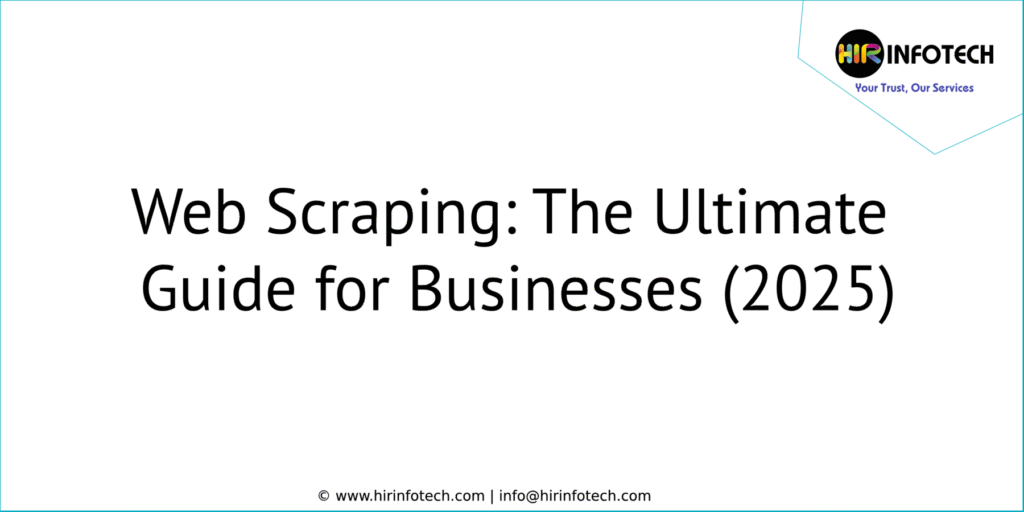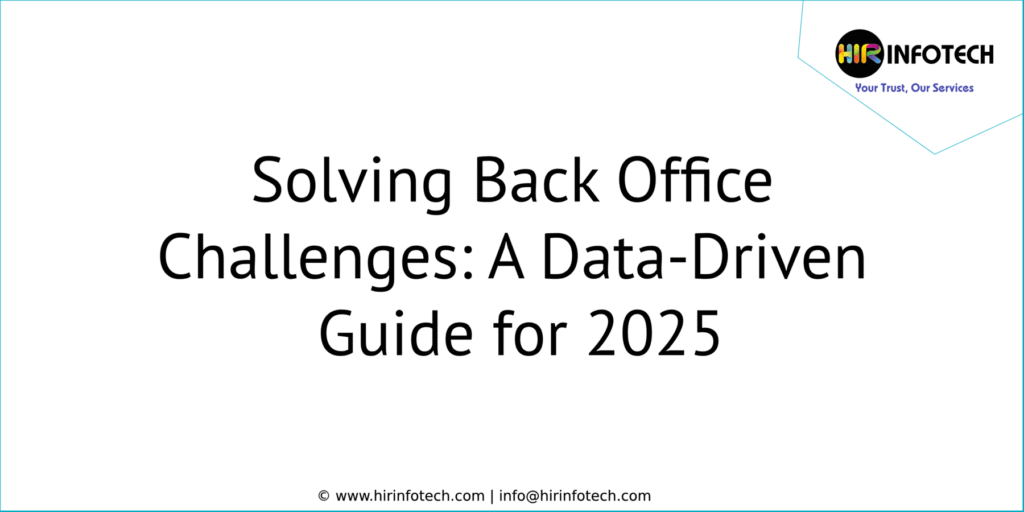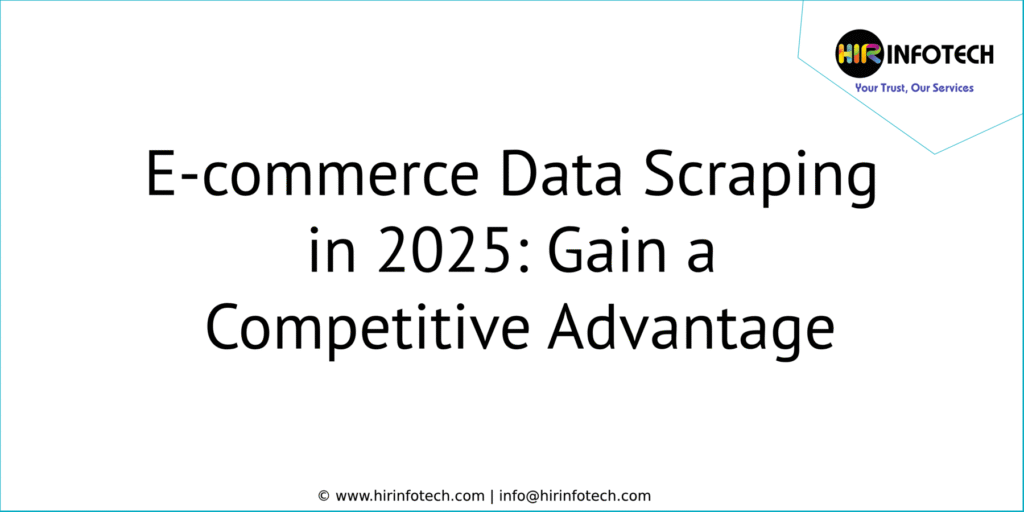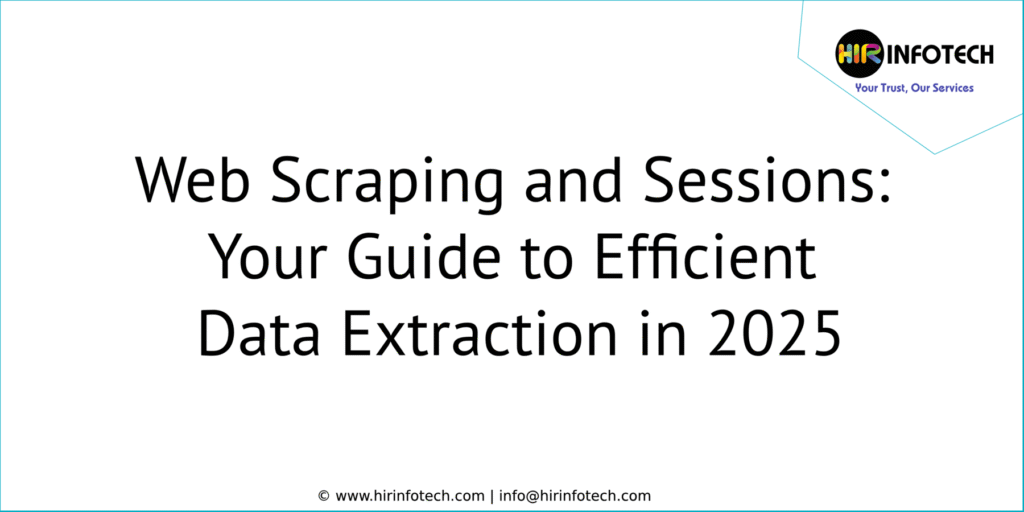
This guide is for mid-to-large companies. These companies often need to collect large amounts of data from websites. Web scraping is the perfect solution. It’s fast, efficient, and automates the entire process.
What is Web Scraping? (A Simple Explanation)
Imagine you need information from many websites. Copying and pasting is slow. Web scraping is like a robot. It automatically extracts data from websites. It saves this data in a usable format. Think of a spreadsheet or database.
How Do Web Scrapers Work?
Web scrapers have two main parts:
- Crawler: This is like a search engine’s bot. It browses the web. It follows links to find the data you need.
- Scraper: This tool extracts the specific data. It’s designed for each website’s structure.
Here’s the process:
- You provide the URLs: Tell the scraper which websites to visit.
- The crawler fetches the code: It downloads the HTML (and sometimes CSS and JavaScript).
- The scraper extracts the data: It pulls out the specific information you defined.
- The data is saved: Usually in a spreadsheet (like Excel) or a database.
Types of Web Scrapers
There are several types of web scrapers. They differ in how they’re built and where they run:
- Self-Built vs. Pre-Built:
- Self-Built: You create the scraper yourself. This requires coding skills.
- Pre-Built: You use a ready-made tool. This is easier, but might be less flexible.
- Browser Extension vs. Software:
- Browser Extension: A small program that runs in your web browser. Easy to use, but limited.
- Software: A standalone program. More powerful and flexible.
- Cloud vs. Local:
- Cloud: The scraper runs on a remote server. Your computer’s resources aren’t used.
- Local: The scraper runs on your computer. This can slow down your machine.
Why Python is Popular for Web Scraping
Python is a top choice for web scraping. Here’s why:
- Easy to Learn: Python’s syntax is clear and readable.
- Powerful Libraries: Python has libraries designed for web scraping.
- Scrapy: A comprehensive framework for building large-scale scrapers.
- Beautiful Soup: Great for parsing HTML and extracting data.
- Requests: Simplifies making HTTP requests to web servers.
- Large and Supportive community
What is Web Scraping Used For? (Real-World Examples)
Web scraping has many business applications:
- Price Monitoring: Track your competitors’ prices. Adjust your own pricing strategically.
- Market Research: Understand industry trends. Analyze customer preferences.
- News Monitoring: Stay updated on relevant news and events.
- Sentiment Analysis: Gauge public opinion about your brand or products. Scrape social media for mentions and comments.
- Lead Generation: Find contact information for potential customers.
- Real Estate: Gather property data, pricing, and market trends.
- E-commerce: Monitor product availability, descriptions, and reviews.
- Machine Learning: Gathering huge set of data to train the ML models.
Introducing Smartproxy: A Powerful Web Scraping Solution (Example)
Smartproxy (This is a real, active link) is a tool that simplifies web scraping.
- Key Features:
- Large Proxy Network: It provides access to many IP addresses. This helps avoid getting blocked.
- Web Scraping API: Handles complexities like JavaScript rendering.
- Multiple Scrapers: Tools for e-commerce, social media, and search engines.
- No-Code Scraper: Easy to use, even without coding skills.
- Pricing: From $50 and varies based on the plan and usage.
Ethical and Legal Considerations
- Always check Terms of Service.
- Avoid Scraping the Personal Information.
- Scrape Responsibly.
FAQ
1. Is web scraping legal?
Generally, yes, if you scrape publicly available, non-copyrighted data. Always check a website’s terms of service. Avoid scraping personal data without permission.
2. How do I avoid getting blocked?
Use proxies (like Smartproxy). Rotate IP addresses. Set realistic User-Agents. Add delays between requests.
3. What’s the difference between web scraping and an API?
An API is an official way to get data from a website. Web scraping is used when there’s no API.
4. What’s the best programming language for web scraping?
Python is very popular due to its libraries and ease of use.
5. What are the challenges of web scraping?
Websites change. Anti-scraping measures exist. Handling large datasets can be complex.
6. What is the difference between web scraping and web crawling?
Web crawling is discovering and indexing web pages (like a search engine). Web scraping extracts specific data from those pages.
7. Can web scraping be used for malicious purposes?
Yes, it can. It’s crucial to use web scraping ethically and responsibly. Don’t overload servers or steal data.
Choosing a Web Scraping Approach: DIY vs. Managed Service
You have two main options when it comes to web scraping:
- Do It Yourself (DIY):
- Pros: Full control, potentially lower cost (if you have the skills).
- Cons: Requires programming expertise, time-consuming, you handle all technical challenges.
- Best for: Small, simple projects; developers with web scraping experience.
- Managed Service (like Hir Infotech):
- Pros: No coding required, handles technical complexities, scalable, faster results.
- Cons: Higher cost, less direct control over the technical details.
- Best for: Mid-to-large companies, complex projects, businesses without in-house scraping expertise.
External Link Example: Here’s a helpful article comparing DIY web scraping with managed services: The Pros and Cons of Outsourcing Web Scraping (This is a real and active LinkedIn article. If it becomes unavailable, search for a similar comparison article).
Another External Link Example: This article provides a great overview of web scraping ethics and best practices: Web Scraping Etiquette and Best Practices (This is a real and active link from Scrapfly. If it becomes unavailable, search for a similar guide on web scraping ethics).
Conclusion
Web scraping is a powerful technique. It gives businesses access to valuable data. Used correctly, it can provide a significant competitive advantage.
Need help with web scraping or data extraction? Avoid the technical hurdles. Contact Hir Infotech (ensure this link is always active) for expert data solutions. We’ll handle the complexities, so you can focus on using your data to grow your business.
#WebScraping #DataExtraction #DataMining #Python #Scrapy #BeautifulSoup #Smartproxy #DataSolutions #BigData #2025 #EthicalScraping #WebCrawler #WebScraper



